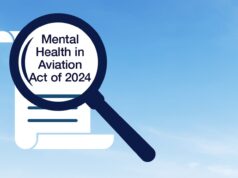
The Thrill and Pressure of a Pilot’s Life
Starting his career as a Navy pilot, John Smith (name changed for confidentiality) had always felt at home in the skies. “Flying was all I ever wanted to do,” he shared, describing memories of seeing Top Gun with his father as a kid. It was a career that represented freedom and responsibility. The deep sense of purpose and connection he had with his squadron added to his love for his career. While John’s life in the air was incredibly fulfilling, his reality on the ground was a different story.
Facing an Invisible Battle
On the surface, John seemed like any other accomplished pilot, but for much of his life, he had wrestled with an invisible force he couldn't quite control: Anger. “I had a really bad temper before being medicated,” he admitted, recalling how even as a kid, it didn’t take much to set him off. It felt like an unstoppable current of emotion, making his blood boil and his veins pulse with intensity. In college, his anger would sometimes explode—he went through class rings and even broke computer screens in moments of fury. It wasn't until he hit a breaking point in his marriage that he started anger management, where he began to learn ways to hold back the rage that had disrupted his life and relationships for so long.
Yet, behind this struggle, he felt an intense shame and reluctance to admit to anyone what he was going through. He described how the stigma and fear of appearing as if there were something “wrong with him” held him back: “I might not be perfect? What?!” He kept his emotions bottled up, and it wasn't until years later that he fully recognized the weight of carrying this burden alone.

The Turning Point: Seeking Help
After years of feeling trapped in a dark cycle, John was finishing up a tour with the Navy and facing his regular security screen. During the screening, his examiner went down a list of questions. When they got to, “Do you ever feel depressed?” This time, John hesitated. He knew that if he were diagnosed, it would end his flying career with the Navy, but the impact upon his personal life had become too much. It wasn’t an easy choice, but he finally made the decision to seek help and said yes. “I reached a point where I knew I had to do something. It wasn’t just about me; it was about my kids and wanting to be a good dad.” Taking care of his mental health had no longer become a choice; it was a necessity.
As expected, John was immediately finished flying for the Navy. After further evaluation from a psychiatrist, he received a diagnosis of “Dysthymia,” also known as Persistent Depressive Disorder. Once diagnosed, he started taking Zoloft and Wellbutrin. These medications, from his perspective, were game-changers. The defining moment was while he was working on his hot-rod car. He was trying to separate a ball joint and had been working on it for 45 minutes. His knuckles were bleeding, his hands hurt, and he was calmly lying there under the car thinking, “What else could I do to try to get this thing separated?” And then it occurred to him, “Wait a second, why am I not throwing sh*t across the room and punching things right now?!” The medications actually made a difference.
A New Path: The HIMS Program
A little while after this episode, John learned about the Human Intervention Motivation Study (HIMS) program from a fellow aviator. This program connects pilots with AMEs to offer structured support specifically tailored to the needs of pilots managing mental health challenges. John signed up for the program as his goal was to get back to flying, and as he progressed through the program, he began to feel a renewed sense of confidence and control. While the process was, as he described, “… incredibly frustrating and shockingly not covered by insurance,” John was happy to have it as a resource. It provided tangible steps forward, finally allowing him to move back toward his career in aviation.
After a 13-month period consisting of multiple Cog-screens, appointments with a psychiatrist, psychologist, AMEs, and multiple back-and-forths via mail regarding documentation, John finally received his medical a week before starting training at a 121 carrier. He has since moved from that 121 carrier to another, and in 2021 retired from the Navy after serving for 21 years. Having regained his footing in both his career and his personal life, John’s focus has now shifted from managing his own issues to also sharing his experience with others.

A New Mission: Advocating for Mental Health
Today, John approaches each flight with a new mission: to fly safely AND help others see the importance of mental health in aviation. By sharing his experience, he hopes to destigmatize mental-health challenges among pilots and encourage others to seek help if they need it. “There are a lot of resources out there. I want others to know they’re not alone and they can reach out.” With that, he knows that there are still consequences for pilots with particular diagnoses. “Once you throw the word ‘depression’ out there, they are going to take your medical away. It’s going to take six months or more to get it back, so find things to do.”
Even with the potential career impact, he stressed that if a pilot feels they need support, they should definitely go see someone and get the help they need. “It’s going to be better. Don’t try to keep living with an illness that you can mitigate. There are resources out there. It is hard, but in the long run, you are going to be better off if you get the help you need.”
Resources & Support: Taking the First Step
If you, or someone you know, is struggling with mental health, there are resources available specifically for pilots. Consider reaching out to the HIMS program, look into resources from AOPA if you are a member, or explore other mental-health resources specifically designed for the unique challenges faced by those in aviation. Watch this Webinar for more information. There is a path forward, and it starts with seeking help.
If you have any questions or would like to contact the pilot interviewed for more information or assistance with your own journey, please contact the author at Shannon@aviationconversations.com.
Counselor Gone Coach
Owner & Founder of Aviation Conversations
Stress Management & Personal Coaching for Pilots
























































































































